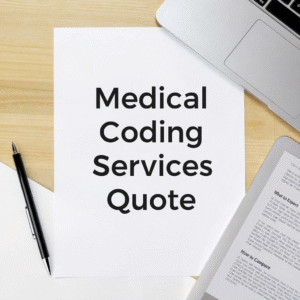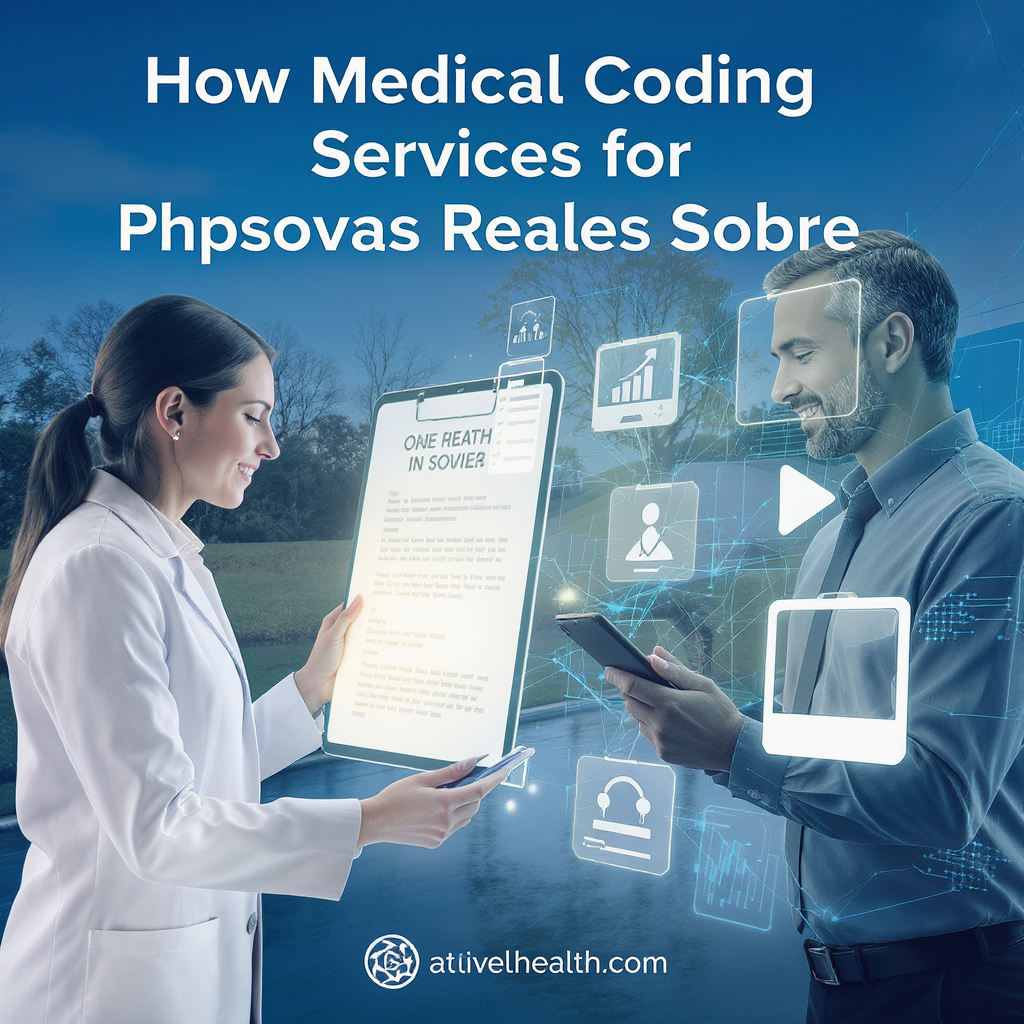Medical Coding for Start-Up Practices: A Comprehensive Guide to Success
Medical Coding
Medical Coding
Starting a medical practice is an exciting venture, but it comes with numerous challenges that can make or break your success. Among the most critical yet often overlooked aspects is medical coding – the backbone of healthcare revenue cycle management. For start-up practices, getting medical coding right from day one isn’t just important; it’s essential for financial viability and long-term growth.

Medical coding serves as the universal language that translates medical services, procedures, diagnoses, and equipment into standardized alphanumeric codes. These codes are what insurance companies, Medicare, and Medicaid use to process claims and determine reimbursement amounts. For a new practice, understanding and implementing proper medical coding systems can mean the difference between thriving and struggling to keep the doors open.
Understanding the Foundation: What Is Medical Coding?
Medical coding involves the transformation of healthcare diagnoses, procedures, medical services, and equipment into universal medical alphanumeric codes. The primary coding systems include Current Procedural Terminology (CPT) codes for procedures and services, International Classification of Diseases (ICD-10) codes for diagnoses, and Healthcare Common Procedure Coding System (HCPCS) codes for products, supplies, and services not included in CPT.
For start-up practices, this process directly impacts cash flow, compliance, and operational efficiency. Every patient encounter must be accurately coded to ensure proper reimbursement from insurance providers. Incorrect coding can lead to claim denials, delayed payments, compliance issues, and even potential legal problems.

The complexity of medical coding has increased significantly over the years. With thousands of possible codes and frequent updates to coding guidelines, even experienced practices struggle to maintain accuracy. For start-ups, this complexity presents both a challenge and an opportunity to establish best practices from the beginning.
The Critical Importance for New Practices
Start-up medical practices face unique challenges that make proper medical coding even more crucial than for established practices. New practices typically operate with limited cash flow, making every claim payment vital for operations. Unlike established practices that may have financial cushions to absorb coding errors and delayed payments, start-ups often operate month-to-month.
Furthermore, new practices are building their reputation with insurance companies and patients. Consistent coding errors can damage relationships with payers, leading to increased scrutiny and potential audits. This scrutiny can result in delayed payments and additional administrative burdens that a start-up practice may not be equipped to handle.
From a compliance perspective, new practices must establish proper documentation and coding procedures from day one. The Centers for Medicare & Medicaid Services (CMS) and other regulatory bodies don’t provide grace periods for new practices. Compliance violations can result in significant penalties, including exclusion from federal healthcare programs.
Key Coding Systems Every Start-Up Should Master
CPT Codes (Current Procedural Terminology): These five-digit codes describe medical, surgical, and diagnostic services. CPT codes are updated annually, and staying current with these changes is essential for accurate billing. Start-up practices should invest in current CPT code books and consider subscribing to coding update services.
ICD-10 Codes (International Classification of Diseases, 10th Revision): These codes describe patient diagnoses and are required for all healthcare claims. ICD-10 includes over 70,000 codes, making it far more detailed than its predecessor. The specificity required by ICD-10 demands thorough documentation from providers.
HCPCS Codes (Healthcare Common Procedure Coding System): These codes cover items and services not included in CPT, such as ambulance services, durable medical equipment, and certain drugs. Level I HCPCS codes are identical to CPT codes, while Level II codes are alphanumeric and maintained by CMS.

Modifiers: These two-digit codes provide additional information about procedures or services. Proper use of modifiers can significantly impact reimbursement and claim acceptance rates. Common modifiers include -25 (significant, separately identifiable evaluation and management service), -59 (distinct procedural service), and various anatomical modifiers.
Common Coding Challenges for Start-Ups
New practices often struggle with several coding-related issues that can impact their financial stability. Undercoding, where providers use less specific or lower-level codes than appropriate, results in reduced reimbursement. This conservative approach, while reducing audit risk, leaves money on the table that start-ups can’t afford to lose.
Conversely, overcoding or upcoding – using higher-level codes than supported by documentation – can lead to audits, penalties, and damaged payer relationships. Finding the balance requires proper training and ongoing education.
Documentation deficiencies represent another major challenge. Proper coding requires detailed, specific documentation that supports the codes submitted. Many healthcare providers, especially those new to practice ownership, underestimate the documentation requirements for optimal coding.
Code bundling issues also plague new practices. Medicare and private payers have extensive edit systems that prevent payment for certain code combinations. Understanding these edits and how to properly use modifiers to override them when appropriate is crucial for maximizing reimbursement.
Building Your Coding Infrastructure
Start-up practices have several options for handling medical coding, each with distinct advantages and disadvantages. In-house coding involves hiring trained medical coders to work directly for the practice. This approach provides maximum control over the coding process and allows for immediate communication between coders and providers. However, it requires significant upfront investment in salaries, benefits, training, and coding software.
Outsourcing coding services to specialized companies offers expertise and scalability without the overhead of employees. Reputable coding companies employ certified coders with extensive experience and provide additional services like compliance monitoring and reporting. The downside includes less direct control and potential communication delays.
Hybrid approaches combine elements of both strategies, such as handling routine coding in-house while outsourcing complex cases or overflow work. This approach can provide flexibility while managing costs, but requires careful coordination to maintain consistency.

Regardless of the chosen approach, start-up practices must invest in proper coding software and resources. Electronic Health Record (EHR) systems with integrated coding capabilities can streamline the process, but practitioners must understand the limitations and ensure proper oversight.
Technology Solutions and Tools
Modern coding technology offers numerous solutions to help start-up practices improve accuracy and efficiency. Computer-Assisted Coding (CAC) systems use natural language processing to suggest codes based on provider documentation. While these systems can improve productivity, they require human oversight to ensure accuracy.
EHR integration represents another significant technological advancement. Systems that seamlessly integrate clinical documentation with coding workflows can reduce errors and improve efficiency. However, start-ups should carefully evaluate EHR coding capabilities and ensure they meet their specific needs.
Mobile coding applications allow coders to work remotely and provide real-time access to coding resources. For start-up practices with limited office space, mobile solutions can provide flexibility while maintaining productivity.
Cloud-based coding platforms offer scalability and reduce IT infrastructure requirements. These solutions typically include automatic updates, backup capabilities, and integration options with other practice management systems.
Training and Certification Requirements
Proper training is essential for anyone involved in medical coding within a start-up practice. The American Health Information Management Association (AHIMA) and the American Academy of Professional Coders (AAPC) offer comprehensive certification programs that provide foundational knowledge and credibility.
Certified Coding Specialist (CCS) certification from AHIMA focuses on hospital-based coding but provides excellent foundational knowledge applicable to all settings. Certified Professional Coder (CPC) certification from AAPC specifically targets physician office coding and is often more relevant for start-up practices.
Ongoing education is crucial due to frequent coding updates and regulation changes. Both organizations offer continuing education programs, webinars, and resources to help coders stay current. Start-up practices should budget for ongoing training and consider it an investment in their financial stability.

Provider education is equally important. Physicians and other healthcare providers must understand how their documentation impacts coding and reimbursement. Regular training sessions on documentation requirements, coding basics, and compliance issues can significantly improve coding accuracy and revenue.
Quality Assurance and Compliance
Implementing quality assurance programs from the beginning helps start-up practices identify and correct coding issues before they impact revenue or compliance. Regular coding audits, both internal and external, can identify patterns of errors and opportunities for improvement.
Compliance monitoring involves staying current with coding guidelines, payer policies, and regulatory changes. Start-up practices should establish procedures for reviewing and implementing coding updates, including staff training and documentation updates.
Error tracking and analysis help identify systemic issues that may require process changes or additional training. Maintaining detailed records of coding errors, claim denials, and corrective actions demonstrates good faith compliance efforts and can be valuable during audits.
Establishing clear policies and procedures for coding processes ensures consistency and provides guidance for staff. These policies should address documentation requirements, coding guidelines, quality assurance procedures, and compliance monitoring.
Financial Impact and ROI Considerations
The financial impact of proper medical coding on start-up practices cannot be overstated. Accurate coding directly affects cash flow, with properly coded claims processing faster and with fewer denials. Industry studies suggest that coding errors can reduce practice revenue by 5-10%, a significant amount for practices operating on thin margins.
Investment in coding infrastructure and training typically pays for itself through improved revenue capture and reduced administrative costs associated with claim denials and resubmissions. Start-up practices should view coding as a revenue-generating function rather than just an administrative expense.
Return on investment calculations should consider not only direct revenue impact but also indirect benefits such as improved payer relationships, reduced audit risk, and enhanced operational efficiency. Practices with strong coding programs often experience faster growth and better financial stability.

Future-Proofing Your Coding Operations
The healthcare industry continues to evolve, with new payment models, technology solutions, and regulatory requirements constantly emerging. Start-up practices must build coding operations that can adapt to these changes while maintaining accuracy and efficiency.
Value-based payment models increasingly require detailed coding for risk adjustment and quality reporting. Practices should prepare for these models by establishing robust documentation and coding processes that capture the full complexity of patient conditions.
Artificial intelligence and machine learning technologies promise to transform medical coding in the coming years. Start-up practices should stay informed about these developments and consider how they might impact their coding strategies.
Interoperability requirements and data sharing initiatives will likely increase the importance of standardized, accurate coding. Practices with strong coding foundations will be better positioned to participate in these initiatives and benefit from improved care coordination.
Conclusion: Setting the Foundation for Success
Medical coding represents a critical success factor for start-up medical practices that cannot be overlooked or treated as an afterthought. The decisions made during the early stages of practice development regarding coding infrastructure, training, and quality assurance will have lasting impacts on financial performance and growth potential.
Start-up practices that invest in proper coding from the beginning position themselves for success in an increasingly complex healthcare environment. While the initial investment in coding infrastructure and training may seem daunting, the long-term benefits far outweigh the costs.

The key to success lies in understanding that medical coding is not just about compliance or avoiding denials – it’s about maximizing revenue, building strong payer relationships, and creating operational efficiencies that support practice growth. By treating coding as a strategic function rather than an administrative burden, start-up practices can build strong foundations for long-term success.
As the healthcare industry continues to evolve, practices with robust coding operations will be better positioned to adapt to new requirements, participate in innovative payment models, and deliver the high-quality care that patients deserve. For start-up practices, there’s no better time than now to get medical coding right.



